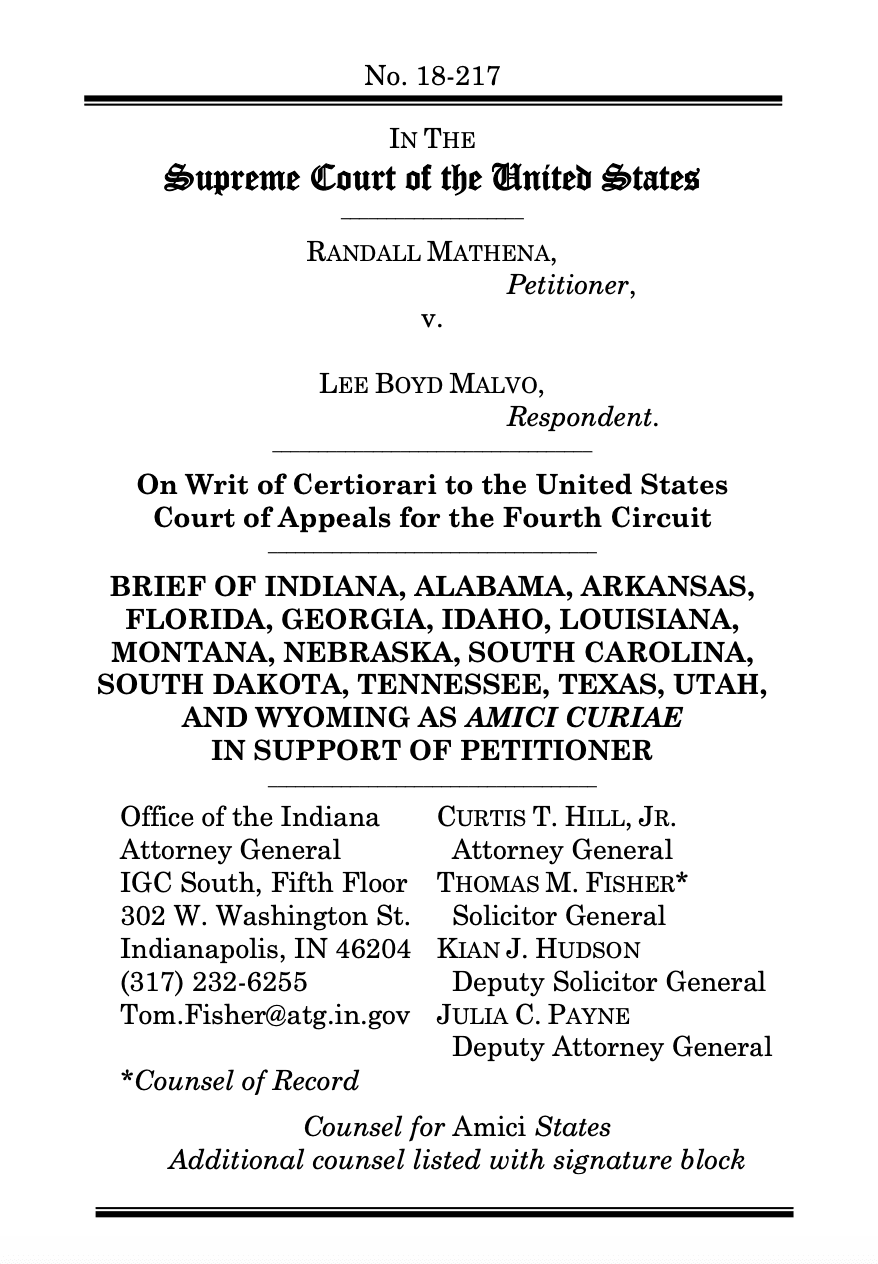
Summary of Argument
The decision below wrongly holds that the Eighth Amendment categorically prohibits life-without-parole sentences for defendants who committed homicide before they turned 18—unless, so says the decision below, the sentencer makes an explicit finding that the “crimes reflected irreparable corruption or permanent incorrigibility.” Pet. App. 22a. The Eighth Amendment contains no such magic-words requirement. Rather, this Court has held that the Eighth Amendment merely prohibits grossly disproportionate sentences and, in order to prevent the risk of such sentences, requires sentencers to consider a juvenile offender’s youth before imposing a sentence of life without parole. The Court has thus held that while the Eighth Amendment prohibits mandatory life without-parole sentences for juvenile offenders, it does not prohibit such sentences when they are discretionary: Sentencers exercising their discretion to impose a juvenile life-without-parole sentence will have considered the offender’s youth, and such sentences therefore comply with the Eighth Amendment. The below decision’s contrary conclusion misreads the Court’s precedents and should be reversed.
1. The origins of this case trace to a recent series of decisions in which the Court has—over vigorous and well-reasoned dissents—expanded Eighth Amendment doctrine to apply categorical restrictions to prison sentences imposed for crimes committed by juveniles. This case directly arises from the last two decisions in this sequence: Miller v. Alabama, 567 U.S. 460 (2012), which held that the Eighth Amendment prohibits imposing mandatory life-without-parole sentences on juveniles, and Montgomery v. Louisiana, 136 S. Ct. 718 (2016), which held that Miller’s rule applies retroactively to cases on collateral review. The decision below stretched these decisions to apply a new categorical rule to discretionary juvenile life-without-parole sentences, requiring sentencers to make a specific finding of “permanent incorrigibility” before imposing such a sentence. Pet. App. 22a. Particularly given the doubtful expansions of the Eighth Amendment that underlie Miller and Montgomery, the Court should refuse to endorse this still further intrusion into States’ sovereign interests.
2. Moreover, whether or not the Court takes a skeptical view of Miller and Montgomery, these decisions merely prohibit mandatory juvenile life-without-parole sentences; they do not require sentencers imposing discretionary juvenile life-without-parole sentences to make an explicit finding of permanent incorrigibility. Miller held that the Eighth Amendment prohibits courts from imposing life-without-parole sentences without considering “youth (and all that accompanies it),” because doing so “poses too great a risk of disproportionate punishment.” 567 U.S. at 479. And Montgomery recognized that, because Miller is fundamentally premised on the substantive right to be free from grossly disproportionate sentences, its rule is substantive and therefore retroactively applicable to cases on collateral review.
Crucially, neither of these decisions held that the Eighth Amendment requires state sentencing bodies to adopt specific procedures or recite particular words. And rightly so: The Court has interpreted the Eighth Amendment only to prohibit disproportionate punishments. And while it has observed, most recently in Montgomery, that substantive rights sometimes necessitate procedural changes, the Court has long held that States, not federal courts, have the authority to define these procedures, in keeping with principles of federalism and respect for state sovereignty.
3. Because Miller merely requires sentencers to consider the offender’s youth before imposing a sentence of life without parole on a juvenile, when such sentences are discretionary they necessarily comply with Miller’s categorical rule. Sentencers with discretion to choose whether to impose such sentences will invariably consider the offender’s youth and any related circumstances; there is thus no need for the Court to require factual findings to recite precise formulations such as “permanent incorrigibility.” Such a requirement is unnecessary to protect the right announced in Miller and would improperly undermine States’ authority to set their own rules of criminal procedure. Miller announced a single, categorical Eighth Amendment rule prohibiting mandatory juvenile life-without-parole sentences. The Court should reverse the below decision’s holding that the Eighth Amendment also imposes a categorical magic-words requirement on discretionary juvenile life-without- parole sentences.
Open Amicus Brief as PDF